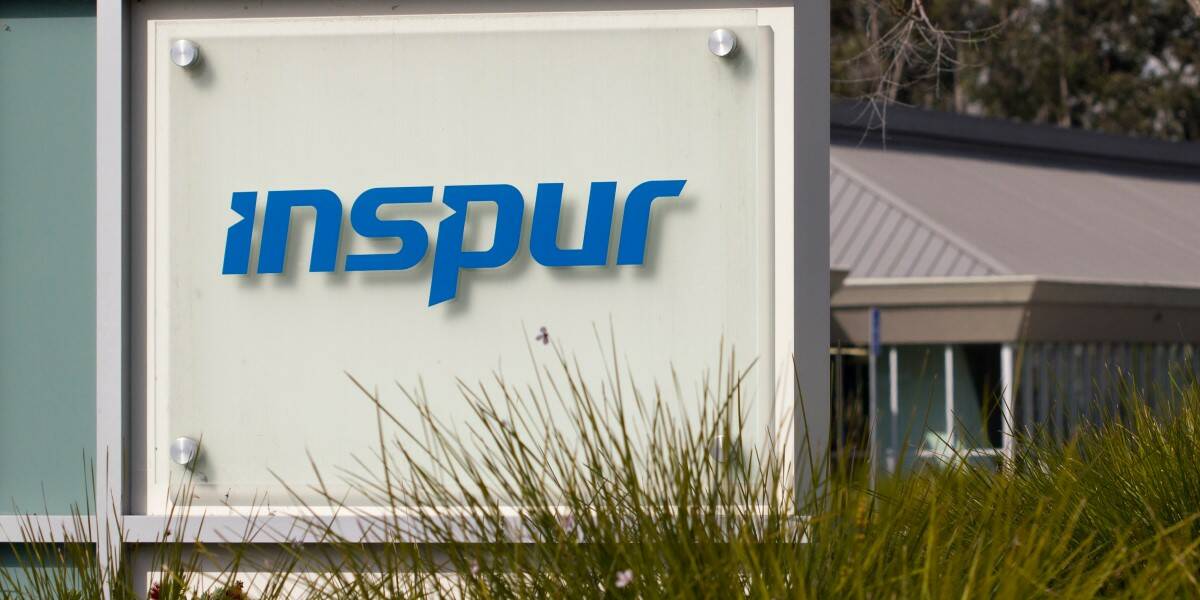US Adds Inspur – Friend To Intel, IBM, Cisco And Hyperscalers – To Export Ban List

The US Department of Commerce last week added Inspur Group to its entity list of Chinese businesses that US orgs can only work with after securing a licence – a move with the potential to cause significant strife for US tech giants.
A March 3 update [PDF] to the entity list named Inspur and Loongson "for acquiring and attempting to acquire US-origin items in support of China's military modernization efforts."
Inspur is an original design manufacturer that happily offers its creations to third parties to sell under their own brands, as well as selling systems itself. It is also an original equipment manufacturer that vendors can hire to build kit using their own designs.
Many big US tech players work with Inspur: IBM and Cisco have joint ventures with the Chinese outfit. Microsoft has worked with Inspur to develop an Azure Stack HCI offering. Intel and AMD both court Inspur, motivated by the Chinese builder almost certainly supplying servers to hyperscale clouds. The Open Compute Project has collaborated with Inspur on designs and systems.
We could add to the list in the paragraph above, but you get the idea: Inspur and the US tech industry are well-acquainted – perhaps a little co-dependent in some fields.
And now those US businesses are effectively banned from working with their Chinese partner.
- US sanctions fail to stop Russia connecting with Cisco hardware
- China shops around US bans to power its nuclear weapons research program
- US pressures Asian allies to join crusade against Chinese chipmakers
- HPE to offload remaining stake in Chinese joint venture H3C
The addition of Loongson to the entity list is also significant because the Chinese chipmaker is the nation's most advanced, having developed its own MIPS-compatible LoongArch instruction set and reportedly used it to power processors said to rival the performance of 11th-gen Intel desktop silicon.
If those reports are correct, and Loongson is close to delivering products that would make Intel and AMD less important to China's tech ecosystem, US sanctions would lose much of their bite.
Loongson landing on the entity list may slow its delivery of products and/or further impede China's hoped-for achievement of technological self-sufficiency.
All Chinese businesses can be compelled to act by China’s government, and are therefore connected to the nation's military. But the entity list doesn't explain specifically how Loongson and Inspur support China’s military modernization efforts.
Merely selling them kit could be enough to earn the US's ire. Inspur could hardly ignore a customer as large as the 2.8-million strong People's Liberation Army, which is a prime candidate to rid itself of Windows and adopt Kylin Linux and locally made chips on the desktop.
China's weekend declaration that it will accelerate its tech self-sufficiency drive therefore looks very well-timed.
But the listing of Inspur won't be welcomed by US tech titans at a time of slow infrastructure sales: IBM, Intel, and Cisco will doubtless lament losing access to a major market. ®
From Chip War To Cloud War: The Next Frontier In Global Tech Competition
The global chip war, characterized by intense competition among nations and corporations for supremacy in semiconductor ... Read more
The High Stakes Of Tech Regulation: Security Risks And Market Dynamics
The influence of tech giants in the global economy continues to grow, raising crucial questions about how to balance sec... Read more
The Tyranny Of Instagram Interiors: Why It's Time To Break Free From Algorithm-Driven Aesthetics
Instagram has become a dominant force in shaping interior design trends, offering a seemingly endless stream of inspirat... Read more
The Data Crunch In AI: Strategies For Sustainability
Exploring solutions to the imminent exhaustion of internet data for AI training.As the artificial intelligence (AI) indu... Read more
Google Abandons Four-Year Effort To Remove Cookies From Chrome Browser
After four years of dedicated effort, Google has decided to abandon its plan to remove third-party cookies from its Chro... Read more
LinkedIn Embraces AI And Gamification To Drive User Engagement And Revenue
In an effort to tackle slowing revenue growth and enhance user engagement, LinkedIn is turning to artificial intelligenc... Read more

